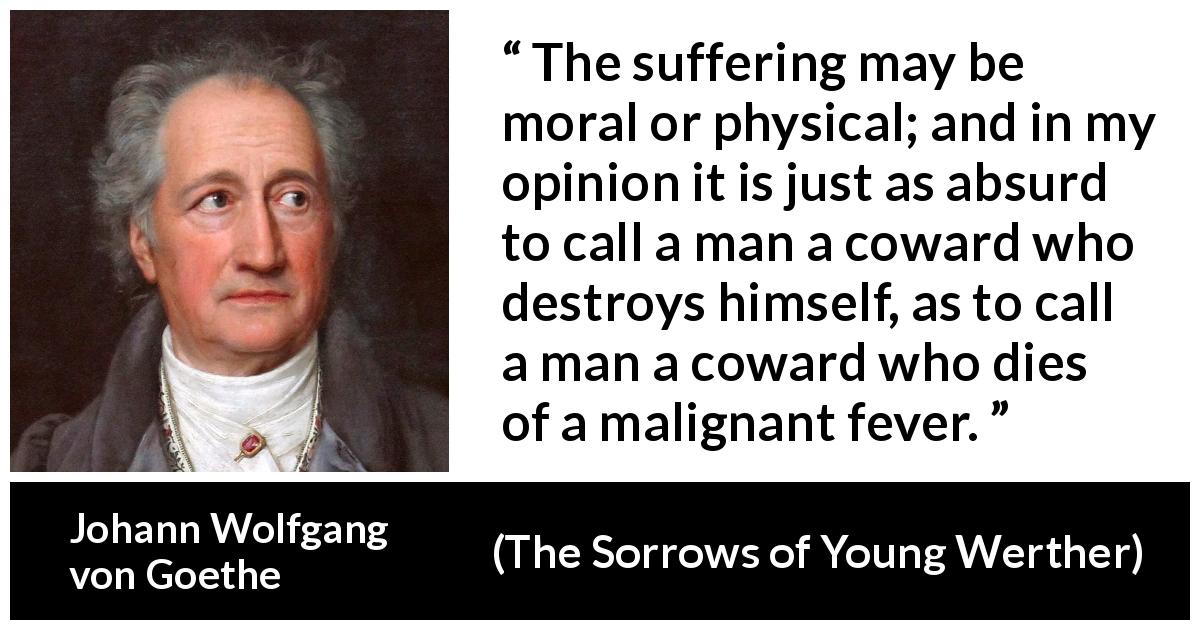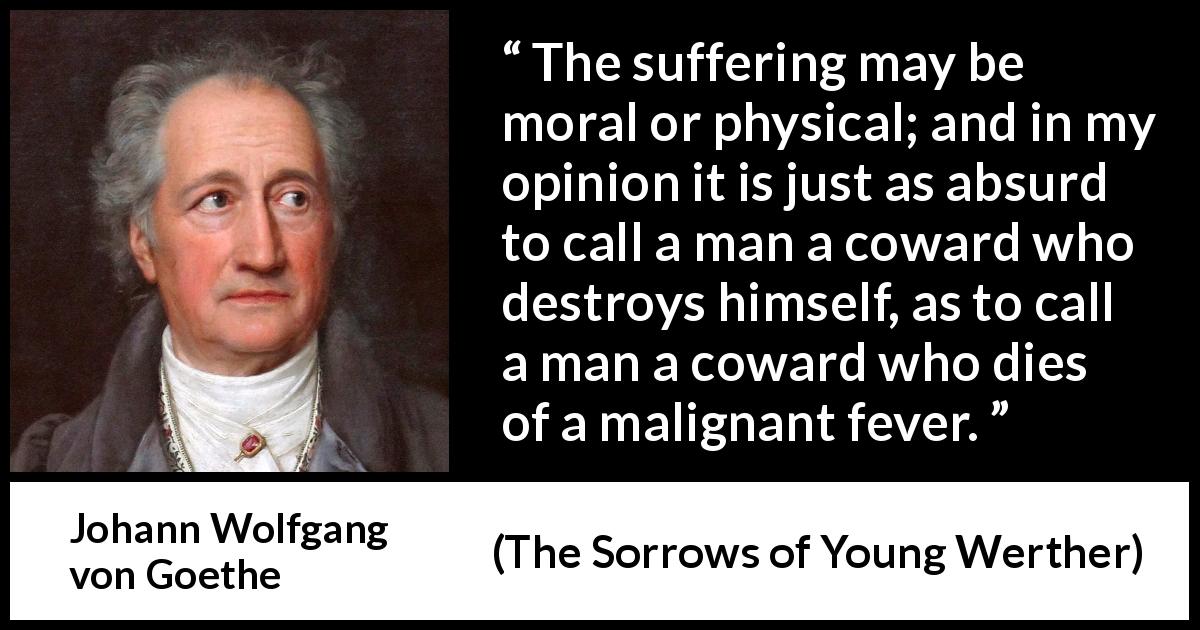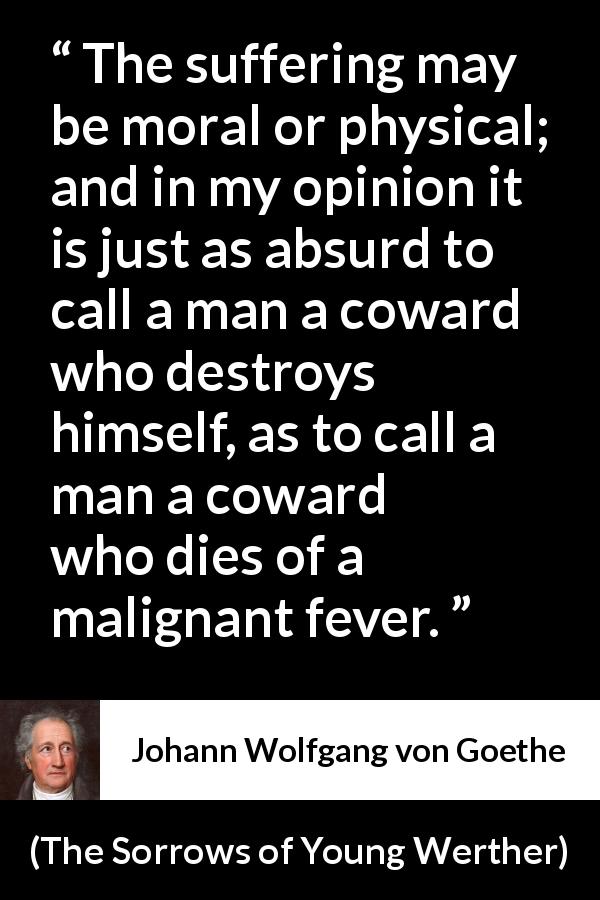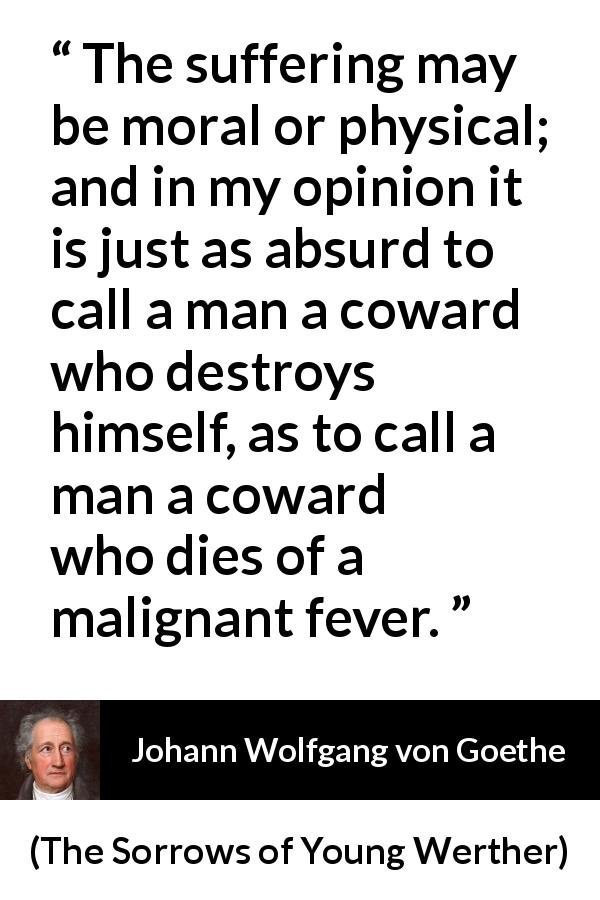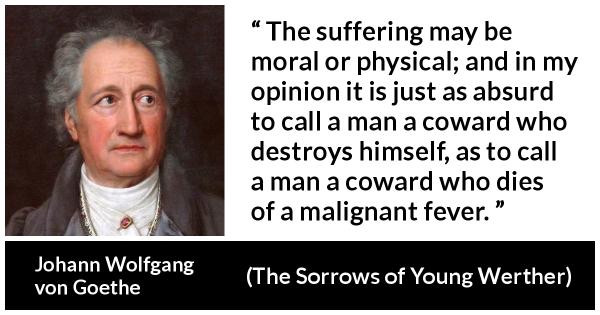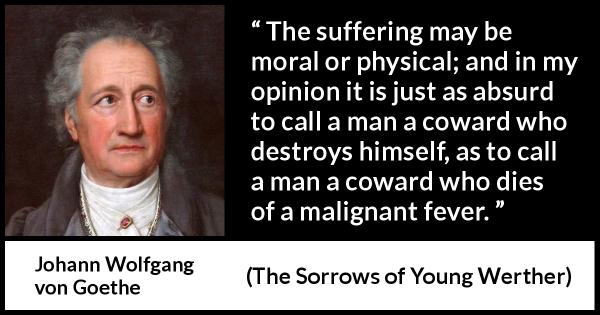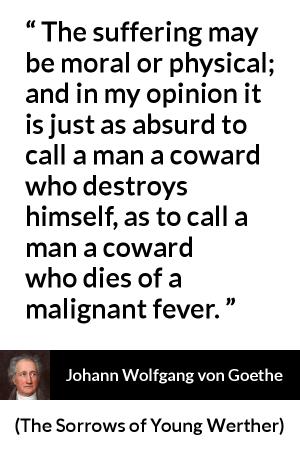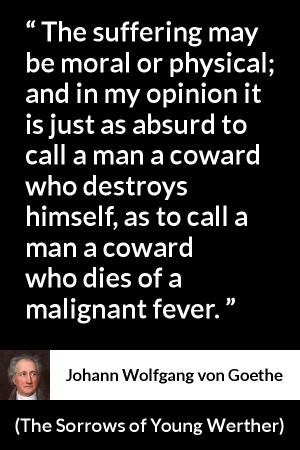“ The suffering may be moral or physical; and in my opinion it is just as absurd to call a man a coward who destroys himself, as to call a man a coward who dies of a malignant fever. ”
Johann Wolfgang von Goethe, The Sorrows of Young Werther (1774). copy citation
| Author | Johann Wolfgang von Goethe |
|---|---|
| Source | The Sorrows of Young Werther |
| Topic | mind suffering cowardice |
| Date | 1774 |
| Language | English |
| Reference | |
| Note | Translated by R. D. Boylan |
| Weblink | http://www.gutenberg.org/files/2527/2527-h/2527-h.htm |
Context
“It is able to endure a certain degree of joy, sorrow, and pain, but becomes annihilated as soon as this measure is exceeded. The question, therefore, is, not whether a man is strong or weak, but whether he is able to endure the measure of his sufferings. The suffering may be moral or physical; and in my opinion it is just as absurd to call a man a coward who destroys himself, as to call a man a coward who dies of a malignant fever."
"Paradox, all paradox!" exclaimed Albert. "Not so paradoxical as you imagine," I replied. "You allow that we designate a disease as mortal when nature is so severely attacked, and her strength so far exhausted, that she cannot possibly recover her former condition under any change that may take place.” source
"Paradox, all paradox!" exclaimed Albert. "Not so paradoxical as you imagine," I replied. "You allow that we designate a disease as mortal when nature is so severely attacked, and her strength so far exhausted, that she cannot possibly recover her former condition under any change that may take place.” source
